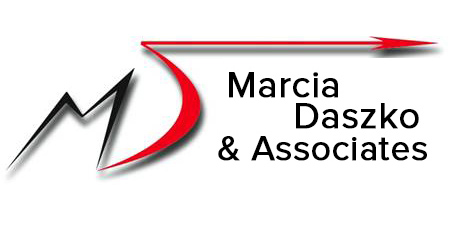Marcia's Leadership Q and As: Dealing With Misery
/Q. Most of my team members have recently lost their jobs. How do I get over the misery I feel?
A. Some people have or will lose their job and are miserable. Others will still have their jobs and are also miserable. There are different kinds of misery and different ways to cope with each. But both kinds mean facing losses.
For those who lose their jobs, there are immediate challenges of paying the bills, and decisions about whether to buy the new car or take the vacation. There’s the loss of a salary, possibly healthcare, or ability to pay the children’s tuition. There’s also the emotional loss of the regular work habits, the communication and project progress that an employee experiences together with the team. Losing both the practical and emotional aspects of employment can have a negative, personal impact.
Even if losing a job is not personal because a whole department, division, project, or company was shut down, the personal toll can impact, at least temporarily a person’s self-esteem or balance in life. To adjust, adapt, and pivot from the job loss may take multiple steps.
It is normal to grieve and go through the grief process steps. It’s helpful to share your thoughts and feelings with trusted family, friends, or colleagues. Then it’s time to pivot. Define what your plan and next steps will be. Again, talk to people who can support you through this process: a transition coach, recruiters, or your mentors. Open the conversations in your network.
One key point is not to necessarily ask for a job directly, but again, build the connection and relationship. Through your conversation, share the value that you bring to an organization. Chances are that it is not your best friend that can introduce you to a new position, but it may be someone you more casually meet at an event.
On the other hand, if some of your team has been laid off or fired, misery is felt by the team members who remain. First, they feel a remorse about the loss of their colleagues, their conversations, and their project progress. How will the goals be achieved? Also, they may have their workload significantly increased and feel resentment about that.
It's best to understand the actions taken that impact you, discuss them and don’t keep the feelings inside, go through the process of loss, and then quickly adopt a fast-forward approach to your next step in your career and life journey. This is a speed bump. It’s part of life and you will adapt. Now’s the time to make new choices, consider new possibilities, and embrace new opportunities.







